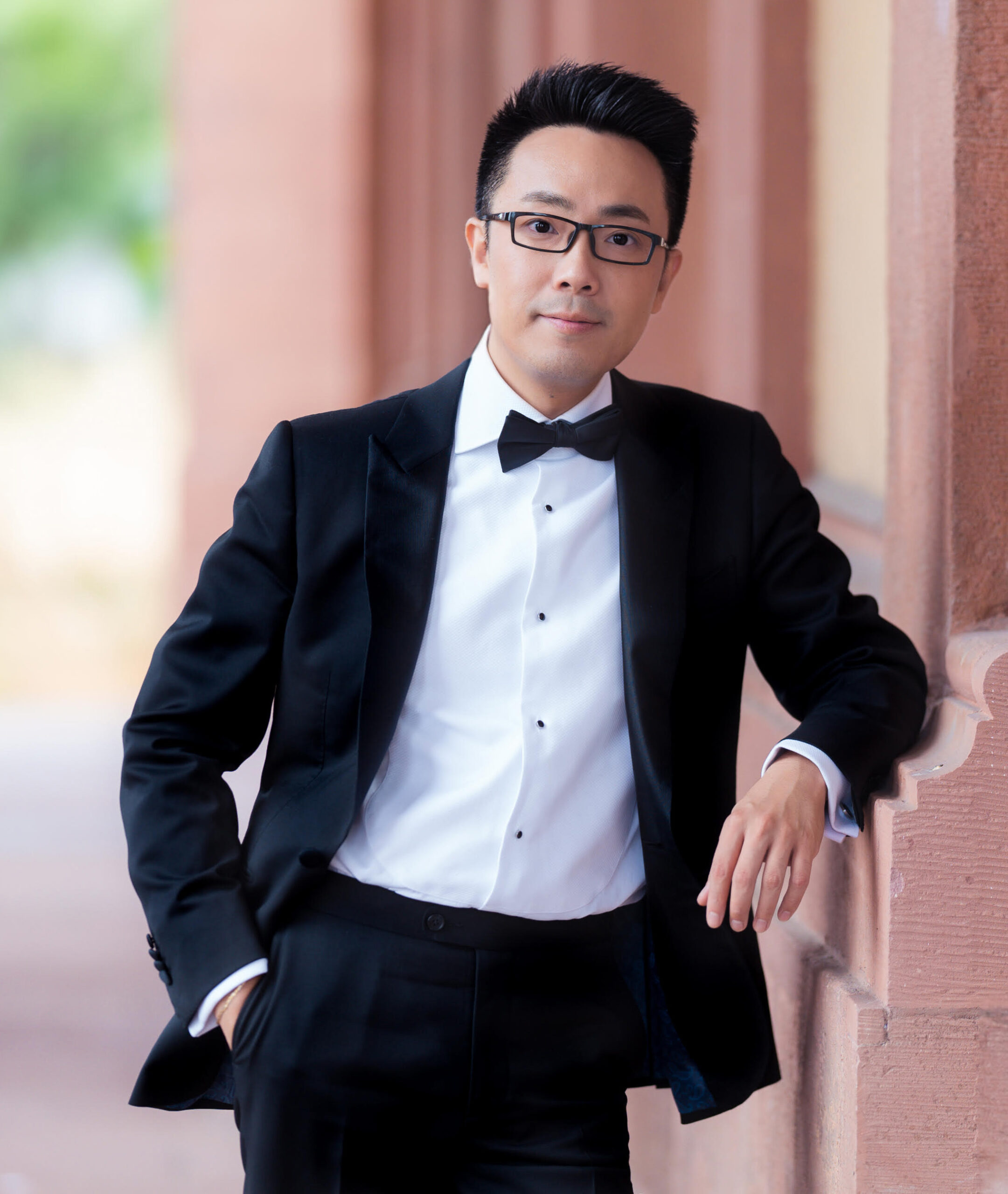Zhen Chen
Pianist

Photo: Sorin Cucui
Zhen Chen
Kurpfälzisches
Kammerorchester
Mannheim
Thomas Rösner
„For this Mozart recording,
we worked tightly together like
a real chamber ensemble:
the piano is just one part of
the orchestra and the music.“
Pianist Zhen Chen on
the new Mozart performance
with the Chamber Orchestra
Mannheim (Kurpfälzisches
Kammerorchester)
MOZART
PIANO CONCERTOS
NO. 15 & 21
New York-based Chinese pianist Zhen Chen and the Chamber Orchestra Mannheim (Kurpfälzisches Kammerorchester) have dared a new interpretation of Mozart’s Piano Concertos No. 15 in B flat major, KV 450 and No. 21 in C major, KV 467. The concertos were recorded under the direction of Thomas Rösner in Germany’s Mannheim, a UNESCO City of Music. As such, these two piano concertos are intimately connected to the musical and historical relevance of this city, which Mozart himself felt likewise drawn to.
„Mozart’s piano works are known for their unforgiving running notes in perfect unison. An ideal condition to record or perform Mozart’s works is a Goldilocks, in which I have known the pieces off pat, and yet I haven’t become too used to a certain mode of playing. The practice has to be meticulous, but I have to be careful of the mental callousness caused by over-practice that could diminish the genuine freshness and excitement in playing Mozart’s works. “ Zhen Chen describes how he manages the uncomparable art of „playing Mozart.“ The two piano concertos No. 15 and No. 21 were created in the years 1784 and 1785, respectively, and were premiered by Wolfgang Amadeus Mozart himself, thus mirroring the quintessential spirit of his oeuvre. When listening, one immediately recognizes Mozart’s desire to challenge musicians and audiences alike through the distinctive temperament and refined ingenuity of his works. Zhen Chen and conductor Thomas Rösner agreed on using markedly vibrant tempi to bring this aspect even more to the forefront during their new recording.
Both concertos include a strong desire for musical progress. Most importantly, the solo instrument no longer serves as the undisputed master of musical action. For Zhen Chen, too, his interactions with the orchestra often become so equal that he almost feels „like a chamber music partner.“ The instrumental colors in both concertos also deserve attention. Here, the genre finally reached the symphonic format. Especially the wind instruments repeatedly step in as autonomous melodic instruments.
In this energetic recording, Mozart’s arguably most difficult piano work meets his likely most popular piano concerto. The former makes the soloist „sweat“ not only because of its unconventional lead fingering and the many fast-paced runs of sixteenth notes – which is exactly what Mozart intended, as evidenced in a quote by the composer. But there are also wonderful moments of genius simplicity, for example in the andante of the second movement. In the concerto No. 21, the proportions between solo instruments and orchestra are rearranged even further, and simultaneously, the pure joy for performance so typical for Mozart is brought to its peak. Here, too, it is the second andante movement that reminds Zhen Chen of „a virtuosic soprano singing an emotional aria.“
The recording of both concertos took place in Mannheim in collaboration with the Chamber Orchestra Mannheim (Kurpfälzisches Kammerorchester). Mannheim, being a UNESCO City of Music, thereby underlines its heritage as a center for classical music in the present. Today, the Chamber Orchestra Mannheim plays a leading role in this endeavor with its dedication to continuing the legacy of the famous Hofkapelle Mannheim.
Pianist Zhen Chen understands himself as part of a global generation that seeks to make this world a better place by fostering mutual respect and understanding between different cultures. His artistic career took off after he completed his Bachelor’s in Piano Performance at the Central Conservatory of Music in Beijing. Afterwards, he went to New York, where he received a Master’s degree at the Manhattan School of Music, with Dr. Arkady Aronov as his mentor. As a soloist and chamber musician, he has performed in prominent concert halls in the United States and China, such as the Carnegie Hall, the David Geffen Hall at the Lincoln Center, the National Centre for Performing Arts in Beijing, and the Shanghai Symphony Hall. He has collaborated with many world-class musicians, including violinist Maxim Vengerov, Cho-Liang Lin, and Elmira Darvarova, and also musicians of the New York Philhar-monic and the Metropolitan Opera Orchestra. In addition, Zhen Chen also works as a composer. His award-winning original compositions explore the possibilities of blending Chinese traditional musical instruments with Western classical instruments and bridge Eastern and Western sensibility and musicality.
Thomas Rösner, born in Vienna, is the founder and artistic director of the Beethoven Philharmonie. He made his international debut upon invitation by Fabio Luisis with the Orchestre de la Suisse Romande. Since then, he has worked with a multitude of renowned orchestras, among them the Deutsches Sinfonieorchester Berlin, Wiener Symphoniker, Bamberger Symphoniker, Mozarteum Orchester Salzburg, and many others. Thomas Rösner enjoys great success with his interpretations of Mozart’s operas – for example with Michael Haneke or Robert Lepage – in Brussels, Zurich, Glyndebourne, Québec, Liège, Seoul, and Houston. He is also dedicated to the rediscovery of composers such as Paul Kletztki, Czeslaw Marek, and Charles Koechlin; his recordings of their works with the Bamberger Symphoniker and the National Polish Radio have elicited great interest.